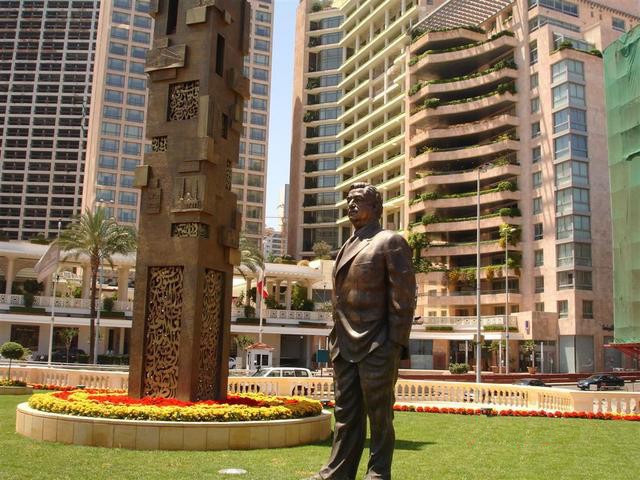The Special Tribunal for Lebanon (STL) announced this week its delayed judgement in the case against four suspects in the assassination of the former prime minister of Lebanon Rafiq Hariri. Only one of them was convicted for his part in the terror attack.
The attack took place in Beirut on 14 February 2005. In the attack, Hariri and 21 other persons were killed. More than 220 people were injured in the attack which was carried out by a suicide bomber.
The assassination had serious political repercussions in Lebanon and led to the withdrawal of Syrian forces from the country. The Syrian government and the Hezbollah organization were suspected of involvement in the assassination.
Only 5 persons, allegedly supporters of Hezbollah, were indicted and tried in their absence. One of them, a member of Hezbollah, was killed in fighting in Syria.
Hezbollah denied any involvement in the bombing. The tribunal judges reportedly said that there was no evidence implicating the group’s leadership, or any evidence linking the Syrian government in any way to the assassination, while adding that they may have had motives to eliminate Hariri and his political allies.
The tribunal is an international court located outside The Hague and was established in 2009 following a UN Security Council decision in 2007 to prosecute the perpetrators in the terror attack applying Lebanese criminal law.
“The judgement in the case is a reflection of the international community’s commitment to justice for the terrible crimes committed on that day,” UN Secretary-General António Guterres said in a statement (18 August).
In fact, the tribunal was never allowed to go to the bottom of the case. The judgement comes as a disappointment for those in Lebanon, especially after the devastating blast in the harbour of Beirut on 4 August, who had hoped for closure in the case and for justice 15 years after the terror attack.
Rafiq Hariri´s son Saad Hariri, himself a former Lebanese prime-minister who resigned in January 2020, accepted the ruling in the hope that he will be re-elected with the support of Hezbollah and the other political parties in Lebanon’s sectarian governing system.
The tribunal’s annual budget has been about €55 million, financed by Lebanon, the US and a number of EU member states and other countries. Its work resulted in 2,682 pages judgement (incl. annexes) mainly describing the different networks involved in the plot to assassinate Hariri and the telecommunications between them.
“The prosecution’s case is built on this circumstantial evidence and expert testimony explaining its significance,” the ruling says. “In this regard, the STL will set important precedent for the admissibility of such modern forms of digital forensics (including call metadata) and the degree to which judges will be willing to draw inferences of criminal liability from it.”
In a statement following STL’s ruling, the EU reiterated the need to fight impunity and strengthen accountability and the rule of law at the international level. “We hope that the judgment today will be given appropriate follow-up.”
“We stress the importance of Lebanon's continued commitment to the full implementation of its international obligations, including United Nations Security Council resolution 1757 (2007), and call on all parties to continue to fully cooperate with the Special Tribunal.”
Asked by The Brussels Times at today’s virtual press conference (21 August) to clarify the meaning of the statement, a spokesperson replied that “we need to see how things will evolve” and declined to add anything to the statement at this stage. The statement also says that there needs to be an independent and credible investigation into the explosion on 4 August.
M. Apelblat
The Brussels Times

